Many years ago, at the beginning of my spiritual path, when I was exploring big concepts of God, love, and consciousness, I remember coming across the following passage:
Form is emptiness,
and emptiness is form.
Form is not other than emptiness,
emptiness is not other than form.
The passage comes from the The Heart Sūtra, a popular sutra in Mahāyāna Buddhism that was written over a thousand years ago. The text is one of the most widely cited texts of the Mahāyāna tradition, and it has been translated dozens of times and in dozens of ways, with an even greater number of commentaries written on its meaning and philosophy.
But I have to be honest with you; when I read the passage, I thought to myself, What a bunch of nonsense. How can one thing be its opposite thing? Why just repeat the same statement four times? Frustrated, I closed the book and put it back on the bookshelf.
At the time, I was not open to this understanding. I was still stuck in the logical, linear way of thinking I had been taught growing up. I could not hold two contrary truths and see them both as valid.
It would take many years before I finally came around to this passage, just as it would take many years for me to be able to handle such complexity and to make space for the paradoxical nature of truth.
It would also take me that long to truly understand the paradox of self-love.
The Paradox of Truth
There are many fundamental questions in life that we seek to answer on the spiritual path.
We try to learn about ourselves by asking,
- Who am I?
- What happens after I die?
- What does it mean to be a good person?
We pursue questions about God like,
- Is there a God?
- Why does God let bad things happen to good people, and good things happen to bad people?
- Is God unable to help, me, or unwilling?
Along with that, we ask questions about the Universe like,
- What is the meaning of life?
- How did the Universe begin?
However, there is an important question we must ask before we even consider any of the above inquiries: are there any actual answers to these questions?
In other words, does asking the question make sense, and could an answer ever follow in a logical way? It is one thing to ask if the Universe is benevolent or indifferent to our human endeavor. But it is a totally different inquiry to ask if the universe is even logical? Can A ≠ B and also B = A? Can 0 = 1 and can 1+1 = bananas?
It is important to consider if any of the fundamental truths of the universe can even be expressed through the subject-verb-object grammatical structure our minds can understand. Can our mind’s current attempt to grasp reality even get close to understanding reality as it is? Or is there a way of understanding that goes beyond the mind?
Going Beyond the Mind
This is exactly the purpose of what a Zen koan is designed to do, and something Zen Buddhism talks about a lot. In a koan, a Zen master offers you, the student, an unsolvable problem. Quintessential koans, such as “What is the sound of one hand clapping?” and “Does a dog have Buddha nature?” would be given by a Zen master to his students to mull over in meditation. When the students eventually reach the edges of what the linear, logical mind can understand, they finally release all attachment to mental concepts, and–in theory–become awakened to the ultimate reality.
The phrase “To go eastward one mile is to go westward one mile” reflects the Zen teaching that two opposites can be true. It is a challenging concept, however, for the Western mind to understand, particularly in English. In the introduction to Shunryu Suzuki’s classic Zen Mind, Beginner’s Mind, the translator Richard Baker observed the challenges of translating Suzuki’s words:
The editing is further complicated by the fact that English is profoundly dualistic in its basic assumptions and has not had the opportunity over centuries to develop a way of expressing non-dualistic Buddhist ideas, as has Japanese.
So not only is the mind inherently dual in its attempt to understand the world, but those of us who speak English have an even harder time going beyond the mind. And so we find this problem with “emptiness and form” and “form and emptiness.”
The first thing the mind wants to ask when thinking of emptiness is, empty of what? Emptiness does not mean empty in the way a bucket would be empty if it didn’t have anything in it. Rather, emptiness is a state of pure potentiality–a space or place from which everything arises and to which everything returns. It is the ground of everything. So just as a wave needs to come from the ocean, so too in order for form to arise, it must come from the greater totality.
And in order to truly love ourselves, we have to fully embrace this paradoxical, nondual nature of truth. To love ourselves, we have to fully embrace two fundamental and seemingly contradictory ideas: you can be both a masterpiece and a work in progress at the same time.
The Paradox of Self-Love
The quote “You can be both a masterpiece and a work in progress at the same time” actually comes from the actress and activist Sophia Bush. It is one of my favorite phrases, because it reflects the paradox of self-love.
Because guess what: you are an insignificant speck of dust in an infinite and expanding universe. In the frame of billions of years behind us and in front of us, what we call a lifetime is nothing. And at the same time, at the wonderfully incredibly marvelously same time, you are the most incredible, vital, and magical being there has ever been.
There are a billion people on this planet just like you, and you are special, precious, and rare. A thousand years from now, no one will know your name or who you were. But if you left this Earth today, it would be one of the greatest tragedies ever.
When we love ourselves, we have to simultaneously accept ourselves just as we are in this moment, and seek to improve ourselves. We have to realize we are both perfect and imperfect, both whole and incomplete.
The poet Yung Pueblo writes a lot about this dichotomy of self-love. To Pueblo, self-love is not taking a bubble bath and eating a piece of cake. Rather, self love is doing the emotional work necessary to be free; it is simultaneously accepting our burdens, shadows, mistakes, and misgivings, while putting in the work to release ourselves from them.
“Self-love is creating space in your life to heal your body and mind,” he writes in Inward, later adding, “Self-love is a meeting and balance of two critically important ideas: loving who we currently are and simultaneously transforming into the ideal version of ourselves.”
It should come as no surprise that Yung Pueblo has practiced in the Buddhist Vipassana tradition. It takes an aware, emotionally mature mind to be able to hold two opposing views as one.
The Greatest Illusion is Also True
A Buddhist would also tell you that the idea of self is an illusion, an idea known as anatman–one of the three fundamental tenets of Buddhism, along with impermanence and dukkha. According to the law of dependent origination, nothing has its own essence; everything arises due to external causes. Yet, despite all this talk of us not actually existing, teachings still say that we have Buddha nature, a fundamental goodness that lies at the heart of every human being. And Buddhist teachers like Tara Brach and Jack Kornfield continually remind us of our inner goodness and loving awareness.
There is a story of a monk driven to tears as he watches his son get sick and finally pass away. A younger monk asks him, “Why are you crying? Aren’t sickness, death, and constancy an illusion?” The elder monk replies, “Yes, but the death of one’s child is the greatest illusion.”
So we exist, and we don’t exist. According to the spiritual teacher Ram Dass, “to say that you are your body is a lie. To say that you are not your body is also a lie.” So we can love our bodies, while also not getting attached or identifying with them. We can love our emotions, while probing deeper to find that they are impermanent–like everything else.
So, yes, reality is an illusion, and we are still deserving of love and happiness. We can fully embrace who we think we are, while also recognizing we are not who we think we are. We can be spiritual beings on human paths and human beings on a spiritual path. We don’t have to choose.
We are all connected, interdependent beings, and, yet, we can cultivate an inner freedom and happiness that does not depend on others. We are separate, and we are connected. As Avalokitesvara put it, “everything is interconnected, everything is one energy, one essence and, at the same time, many.”
When it comes to self-love, we can make mistakes and hold grudges and get emotional sometimes, but we are still perfect. We are perfect in every cell and fiber of our being, but we should still never stop healing and growing. In the billions of years of this universe, our lifetime is just a blip, and it is also the most miraculous and special blip to have ever happened.
There is no atom in the universe that is out of place and, still, we can strive to dismantle systems of injustice and those that cause endless environmental destruction. Matter is 99.9% percent empty space, and, still, nothing is more stable than feeling our feet on the earth or holding the hand of our loved one.
We can love our bodies and the forms they are in, and we and recognize their emptiness: we are living on borrowed matter and energy. Our pain is real, and temporary. We love ourselves fully, and this too, shall pass.
You can be a masterpiece and a work in progress at the same time.









